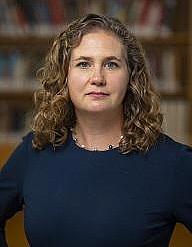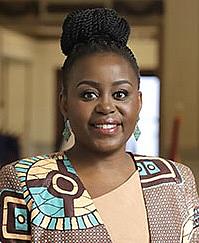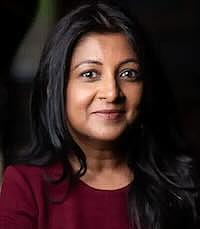The Next Pandemic: Can We Avoid Repeating History?
Bird flu is spreading through cows and has infected at least three people in multiple states. The CDC is asking states to keep flu surveillance at full tilt through the summer. The headlines carry a sobering reminder: The next pandemic could come uncomfortably fast on the heels of the last one. Can we avoid repeating history? COVID-19 has killed nearly 1.2 million people in the U.S., and the country’s inadequate response is widely blamed for worsening the toll, especially among Americans of color, older adults and the often-marginalized people in jobs deemed essential. The World Health Organization warns that a future pandemic could prove even deadlier, urging countries to prepare now. But what does that preparation look like? How are medical and policy experts trying to get ahead of pathogens that could turn into a crisis and further worsen health disparities? What does our response to COVID, and a history of underfunding public health, tell us about how we must improve? Journalists can serve their audience by staying on this story. In this webinar, experts will discuss the latest developments and lessons learned from COVID, and how reporters can keep a spotlight on emerging threats and our collective readiness.
This webinar is free and made possible by The Commonwealth Fund and the National Institute for Health Care Management Foundation.
Panelists

Jennifer B. Nuzzo, DrPH, is the director of the Pandemic Center at the Brown University School of Public Health and a professor of epidemiology. Her work focuses on global health security, public health preparedness and response, and health systems resilience. She directs the Outbreak Observatory, which partners with frontline public health practitioners on research to improve outbreak preparedness and response. Nuzzo regularly advises national governments and organizations on these issues. She is a member of the National Academies of Sciences, Engineering and Medicine’s Standing Committee for CDC Center for Preparedness and Response. She has also served as a member of the U.S. Environmental Protection Agency’s National Drinking Water Advisory Council. Her articles about emerging health security trends have appeared in publications ranging from The Washington Post to USA Today. Nuzzo received a DrPH in epidemiology from the Johns Hopkins Bloomberg School of Public Health and a master’s in environmental health from Harvard University.

Matifadza (Mati) Hlatshwayo Davis, M.D., MPH, is director of health for the city of St. Louis, stepping into the role in 2021 and leading a COVID-19 response that was honored by the Infectious Diseases Society of America and lauded by President Joe Biden. Previously, she was an infectious diseases physician at the John Cochran VA Medical Center and associate program director of the Division of Infectious Diseases fellowship program at the Washington University of St. Louis School of Medicine. An expert on public health and health equity, Hlatshwayo Davis is an associate editor for Disparities and Competent Care for the Infectious Diseases Society of America and the executive producer and co-host of the organization’s “Let’s Talk” podcast. She earned her medical degree from the Cleveland Clinic Lerner College of Medicine and a master’s in public health from Case Western Reserve University, and in September 2023 she was elected as a Fellow of the Infectious Diseases Society of America.

Apoorva Mandavilli is a science and global health reporter at The New York Times. She writes about infectious diseases, including familiar scourges like HIV, malaria and tuberculosis. Her reporting explores the pathogens that cause these diseases, efforts to stop their spread, and the public health agencies that try to manage them. She shared in The Times’s 2021 Pulitzer Prize for Public Service for coverage of the COVID-19 pandemic, and her other awards include the 2019 Victor Cohn Prize for Excellence in Medical Science Reporting. She was the founding editor-in-chief of Spectrum, an award-winning news site on autism science, before joining The Times in May 2020. Her work has also appeared in publications including The Atlantic, Slate and The New Yorker, and in the anthology “Best American Science and Nature Writing.” The founding chair of the Diversity Committee for the National Association of Science Writers, Apoorva has a master’s degree in journalism from New York University and a master’s degree in biochemistry from the University of Wisconsin-Madison.
Suggested reading
“The Fight Over the Next Pandemic,” The New York Times’ The Daily, featuring Apoorva Mandavilli
“The Bird Flu Virus Adapted to Sea Mammals. It May Not Be Done Yet.” By Apoorva Mandavilli, The New York Times
“A Second Dairy Worker Has Contracted Bird Flu, C.D.C. Reports,” by Apoorva Mandavilli and Emily Anthes, The New York Times
“The Bird-Flu Host We Should Worry About,” by Katherine J. Wu, The Atlantic
“C.D.C. Warns of a Resurgence of Mpox,” by Apoorva Mandavilli, The New York Times
“How Poor Tracking of Bird Flu Leaves Dairy Workers at Risk,” by Apoorva Mandavilli, Linda Qiu and Emily Anthes, The New York Times
“Scientists Fault Federal Response to Bird Flu Outbreaks on Dairy Farms,” by Apoorva Mandavilli and Emily Anthes, The New York Times
“Is Bird Flu Coming to People Next? Are We Ready?” by Apoorva Mandavilli, The New York Times
“New Infectious Threats Are Coming. The U.S. Probably Won’t Contain Them,” by Apoorva Mandavilli, The New York Times
“What is Disease X and do we need to worry about it?” by Clare Wilson, New Scientist
“3 ways to prepare society for the next pandemic,” TED Talk from Jennifer B. Nuzzo
GAO Report: “What About the Next Pandemic? How Can the Federal Government Better Prevent and Plan For the Next Public Health Emergency?”
“100,000 models show that not much was learned about stopping the Covid-19 pandemic,” by Eran Bendavid and Chirag Patel, STAT
